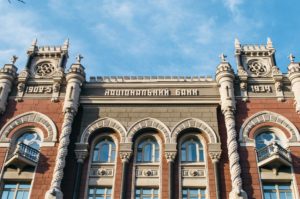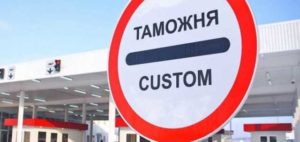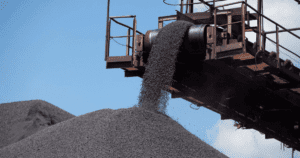
The National Bank of Ukraine (NBU) in addition to conventional short-term tools of refinancing of banks is introducing long-term refinancing for the period of up to five years, the NBU said on Wednesday. “This step is aimed at meeting several goals at once, related both to maintaining financial stability in the country and stimulating economic growth,” the regulator said.
According to its calculations, the long-term refinancing mechanism will support hryvnia bank lending, enhancing the effect of other measures taken by the National Bank over the past months: lowering the refinancing rate and introducing incentive reserve standards.
“Secondly, the new instrument will serve as an additional guarantee of maintaining sufficient liquidity in the banking system. This, in particular, is also important for the smooth conduct of client operations in the face of deteriorating market sentiment due to the spread of the coronavirus disease COVID-19,” the NBU said.
According to the report, the frequency of tenders to maintain bank liquidity, volumes, terms and other parameters of long-term refinancing will be determined by individual decisions of the Board of the National Bank after consideration of these issues by its Monetary Policy Committee.
The interest rate on long-term refinancing loans will be floating as the NBU refinancing rate, which can be changed in accordance with the decisions of the board, along with a constant value in percentage points, which is valid on the day the loan is issued and will remain unchanged for the entire period of use.
If necessary, banks will be able to repay such loans ahead of schedule at any time.
In order to reduce risks in the provision of refinancing loans, the NBU also improved the standards for collateral instruments, the central bank said. In particular, it is possible to directly transfer the bank’s funds from the repayment of the National Bank’s deposit certificates and income on them to partial early repayment of debt, if the certificates are included in the collateral pool. It is also determined that a foreign currency in such a pool should be placed by the bank on NBU accounts as a cash cover without paying interest on it.
“Thus, favorable conditions are created for the development of long-term lending to entrepreneurs and the population, in particular mortgages, loans for business development and others. At the same time, banks will be able to apply for long-term refinancing in situations where they will need additional liquidity,” the regulator said.
At the same time, the NBU said that today, the hryvnia liquidity of the banking system exceeds UAH 200 billion, the currency liquidity is $8 billion, so the introduction of a new tool is more likely to be preventive in the event of a more serious crisis in the global economy.
The central bank said the introduction of a long-term refinancing mechanism was approved by the NBU Board decision No. 29 issued on March 17 amending the regulation on the interest policy of the NBU and decision No. 30 approving changes to the regulation on the application of standard instruments for regulation of the liquidity of the banking system by the NBU. These changes entered into force on March 19, 2020.
National bank of Ukraine’s official rates as of 19/03/20

Source: National Bank of Ukraine

The association of international pharmaceutical manufacturers AIPM Ukraine has asked Ukrainian President Volodymyr Zelensky to organize a Green Route at customs checkpoints to speed up supplies of medicines in the conditions of panic of the population rushing to buy medicines over the spread of the coronavirus disease COVID-19.
“Manufacturers and importers of medicines, under the current conditions, are trying to meet the demand in full for the appropriate medicines,” the association said in a letter sent to the president.
AIPM Ukraine said that, according to information available from AIPM Ukraine member companies, queues at customs, in particular at the Yahodyn customs post, lead to a significant slowdown in the supply of necessary medicines.
“We ask you to contribute to solving this problem and ensure priority customs clearance of medicines by introducing an official” green corridor “for these categories of goods, as has already been done in the European Union in accordance with the recommendations of the European Commission,” AIPM Ukraine asked President Zelensky .
The association also pointed out the need to establish working interaction on this issue with the customs authorities of neighboring countries, such as Poland, to ensure a similar priority for the customs clearance of medicines at their customs posts to ensure imports to Ukraine.

The RDS group of road construction companies will continue road work during the quarantine established due to the spread of coronavirus, and plans to continue to fully fulfill its obligations, RDS co-owner Yuriy Shumakher has told Interfax-Ukraine.
“We express support for the decision of the Ukravtodor management not to curtail the planned projects. The development of infrastructure in the country is the key to Ukraine’s competitiveness and success,” he said.
“The group of RDS road construction companies minimized attendance at work for the staff, but we continue to fully implement all of our road construction projects,” Shumakher added.
According to him, contractors and suppliers in all regions of the presence of RDS Group are working smoothly, there are no problems with the provision of construction materials.
Ukravtodor on March 17 announced its support for the government’s initiatives to prevent the spread of the coronavirus COVID-19 in Ukraine and continuation of all roadwork as usual.
“Ukravtodor supports the government’s initiatives to prevent the spread of the coronavirus COVID-19 in Ukraine. Therefore, we strongly recommend that everyone who can work remotely take this opportunity. At the same time, we want to emphasize that the deceleration of the season of road works is not yet expected. All construction and repair work continues as normal,” the state agency said.
The Ukrainian group of companies RDS includes Kyivshliakhbud and Rostdorstroy. Its core business is construction, modernization and maintenance of roads and bridges, construction of airfield complexes.
The company is building concrete road H-14 Kropyvnytsky-Mykolaiv. As part of the reconstruction of the H-31 Dnipro-Reshetylivka highway in Poltava region, RDS is building an overpass over the railway and the section of the first concrete road in Ukraine. In 2019, the company won a World Bank tender for work on the first category highway M-03 Kyiv-Kharkiv-Dovzhansky.
As of January 2020, the company operates in seven regions of Ukraine and has ten production facilities.
The ultimate beneficial owners of RDS are Ukrainian citizens Yuriy Shumakher and Yevhen Konovalov. The charter capital of the company is UAH 5.13 million.
QUARANTINE, RDS, ROAD CONSTRUCTION, ROSTDORSTROY, SHUMAKHER, UKRAVTODOR

Ferrexpo mining company, with the main assets in Ukraine, increased its share in the international market of pellet suppliers to 8% in 2019 compared to 7% in 2018.
According to the company’s annual report released on the London Stock Exchange on Wednesday, March 17, Ferrexpo maintained its third position in the world ranking of pellet exporters with 10.3 million tonnes (10.2 million tonnes in 2018). Vale-group (Brazil-Oman) with the volume of 32.7 million tonnes takes the first place according to the results of the year, and the Swedish LKAB with 16.3 million tonnes takes the second place.
The Metalloinvest group (Russia) takes the sixth place with export deliveries of 7.2 million tonnes (4.2 million tonnes in 2018), the Metinvest group (Ukraine) takes the tenth place with supplies of 5 million tonnes (5.4 million tonnes in 2018), the Severstal Group (Russia) takes the eleventh place with supplies of 3.8 million tonnes (5.5 million tons in 2018).
In general, the international market for global pellet exporters at the end of 2019 is estimated at 135 million tonnes, decreased by 3% compared to 2018 (139.6 million tonnes).
The company predicted that, high barriers to entry, especially given relatively low pellet premiums, are unlikely to incentivise new pellet supply in 2020. Incumbent producers can balance supply by switching production from blast furnace to direct reduction pellets or from international export to domestic consumption. In 2020, pellet seaborne supply should not increase due to international prices moderating to historical levels and continued supply issues from Brazil. An extended period of low pellet premiums could result in some capacity reduction for producers with high pellet conversion costs. At the end of 2019, industry levels of pellet stocks were higher than the historical average and it may take some time for the market to absorb these, especially taking into account the impact of the COVID-19 virus. This could prevent pellet premiums from rising in the short term, the company said.
In 2019, Ferrexpo reduced the volume of pellet deliveries by key market regions to Central and Western Europe, as well as North East Asia (NEA), sharply increasing sales to China and Southeast Asia (SEA).
Thus, the share of pellets sales in tonnes to Central Europe is the largest one and amounted to 36% (47% in 2018). In 2019, the share of sales in Western Europe decreased from 16% to 13%, in Northeast Asia it decreased from 17% to 16%, in Turkey, the Middle East, and India sales decreased from 6% to 5%. Deliveries to China and South East Asia sharply increased from 13% to 30%. There were not any pellet deliveries to North America in 2019, while in 2018 it amounted to 1%.
In total, some 10.312 million tonnes of pellets were sold in 2019, compared with 10.227 million tonnes in 2018.
“Ferrexpo benefits from a diversified sales portfolio with leading steel mills throughout the world, while its logistics routes to customers provide a competitive advantage given Ukraine’s central geographic location. Ferrexpo’s average shipping duration to Asia is 30 days compared to its main pellet-producing competitors in Brazil (40 days), Canada (55 days) and Scandinavia (50 days). Ferrexpo is also very competitively placed in terms of shipment days to Europe and Turkey. This ensures that weakness in one region, can be compensated by sales into other regions,” the company said.